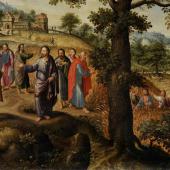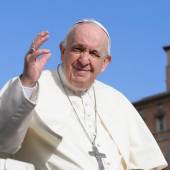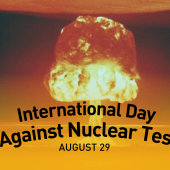International Day for the Eradication of Poverty

Every year on October 17, the International Day for the Eradication of Poverty is observed to raise awareness about people living in poverty.
The main purpose of observing this day is to provide an opportunity to acknowledge the effort and struggle of people living in poverty. It is a chance for them to make their concerns heard; and a moment to recognize that poor people are the first ones to fight against poverty.
This Day honors the millions of people suffering from poverty and their daily courage. It recognizes the essential global solidarity and shared responsibility we hold to eradicate poverty and combat all forms of discrimination.
The observance of the International Day for the Eradication of Poverty can be traced back to October 17, 1987. On that day, over a hundred thousand people gathered at the Trocadéro in Paris, where the Universal Declaration of Human Rights was signed in 1948, to honor the victims of extreme poverty, violence and hunger.
They proclaimed that poverty is a violation of human rights and affirmed the need to come together to ensure that these rights are respected. Since then, people of all backgrounds, beliefs, and social origins have gathered every year on October 17 to renew their commitment and show their solidarity with the poor.
This 2022 International Day for the Eradication of Poverty highlights the theme "Dignity for All in Practice," the commitments we make together for social justice, peace, and the planet.
Dignity for all in practice is the umbrella theme of the International Day for the Eradication of Poverty for 2022–2023.
The dignity of the human being is not only a fundamental right in itself but constitutes the basis of all other fundamental rights.
Therefore, "dignity" is not an abstract concept and it belongs to each and every one. Today, many people living in persistent poverty experience their dignity being denied and disrespected.
The COVID-19 pandemic that gripped the world during the past year has resulted in reversing decades of progress in the fight against poverty and extreme poverty.
According to the World Bank, between 88 and 115 million people are being pushed into poverty as a result of the crisis, with the majority of the new extreme poor being found in South Asian and Sub-Saharan countries where poverty rates are already high."
In 2021, this number is expected to have risen to between 143 and 163 million. These "new poor" will join the ranks of the 1.3 billion people already living in multidimensional and persistent poverty who saw their pre-existing deprivations aggravated during the global pandemic.
As a matter of fact, the measures imposed to limit the spread of the pandemic often further pushed them into poverty, and the informal economy, which enables many people in poverty to survive, was virtually shut down in many countries.
As we embark on the post-COVID recovery and get back on track with the Sustainable Development Goals, many are talking about "building back better," but the message is clear from the people living in extreme poverty that they do not want a return to the past nor to building back to what it was before.
They do not want a return to the endemic structural disadvantages and inequalities. Instead, people living in poverty propose to build forward.
Building forward means transforming our relationship with nature, dismantling structures of discrimination that disadvantage people in poverty, and building on the moral and legal framework of human rights that places human dignity at the heart of policy and action.
Building forward means not only that no one is left behind, but that people living in poverty are actively encouraged and supported to be at the front, engaging in informed and meaningful participation in decision-making processes that directly affect their lives.
So, we need to let ourselves be enriched by the wealth of wisdom, energy, and resourcefulness that people living in poverty can contribute to our communities, our societies, and ultimately to our planet.
Let us reflect on the willingness of those living in poverty to utilize their expertise to contribute towards its eradication.
Radio Veritas Asia (RVA), a media platform of the Catholic Church, aims to share Christ. RVA started in 1969 as a continental Catholic radio station to serve Asian countries in their respective local language, thus earning the tag “the Voice of Asian Christianity.” Responding to the emerging context, RVA embraced media platforms to connect with the global Asian audience via its 21 language websites and various social media platforms.














